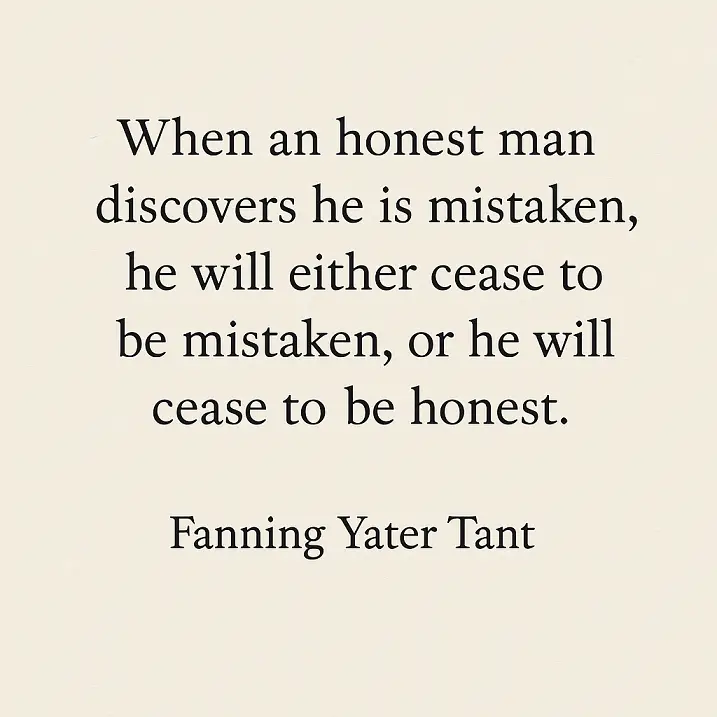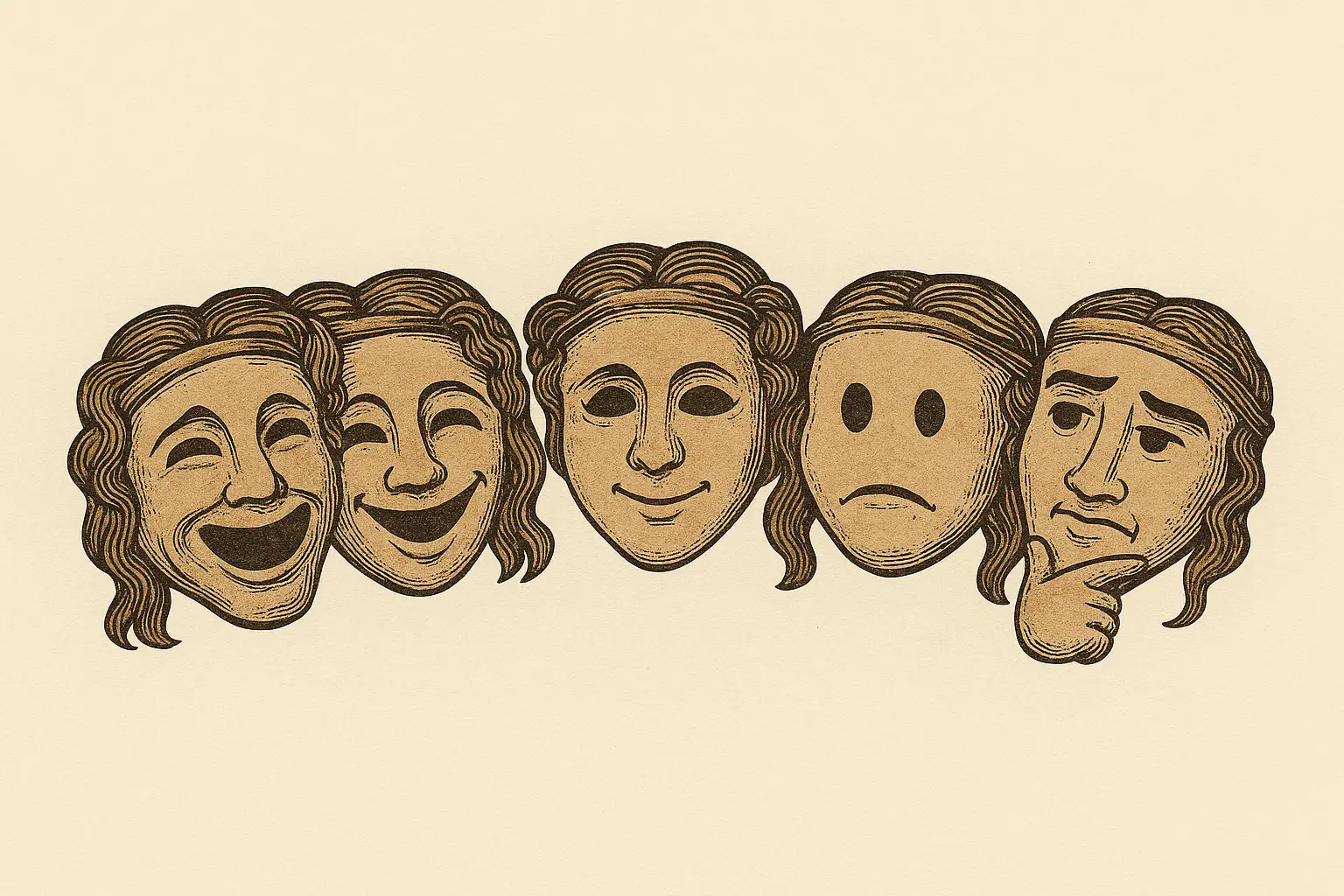By Deke
The Correct Attribution of The Honestly Mistaken Man Quote
In April 1954, a preacher named Fanning Yater Tant penned an editorial in the Gospel Guardian entitled Honestly Mistaken. In it, he wrote a line that has since taken on a life of its own:
“When an honestly mistaken man sees the truth, he will either cease to be mistaken, or he will cease to be honest.”
Signed “F.Y.T.,” this statement was not a philosophical musing for the ages but rather a theological argument. Tant, a prominent figure in the Churches of Christ, was speaking to fellow believers about doctrinal disputes. His point was simple: once someone is shown “the truth” as he understood it, they must either change their position or compromise their honesty by refusing correction.
Yet outside the narrow walls of church debate, the quote resonates with a broader, sharper irony. Applied universally, it becomes a challenge to any deeply held conviction, including the very faith Tant defended. For an honest person confronted with evidence that shakes their religion, the maxim suggests that clinging to belief over truth is to abandon honesty. In that sense, the preacher’s weapon against error becomes a double-edged blade.
And that is the delicious paradox: Tant offered a tool meant to shore up fences around his faith, only to craft a phrase that works just as well for cutting through them.

Common Paraphrases of This Quote
This statement is often paraphrased in slightly different forms, including:
- “When an honest man discovers he is mistaken, he will either cease to be mistaken or cease to be honest.”
- “When an honestly mistaken man sees the truth, one of two things happens: he will either cease to be mistaken, or he will cease to be honest.”
- “When a man or woman is honestly mistaken and hears the truth, they will either quit being mistaken, or they will cease to be honest.”
- “When a man who is honestly mistaken hears the truth, he will either quit being mistaken or cease being honest.”
Misattributions
This quote is sometimes incorrectly attributed to Abraham Lincoln (and occasionally to anonymous “old proverbs”). However, there is no record of Lincoln ever saying or writing these words. The earliest verified source is preacher Fanning Yater Tant in The Gospel Guardian (April 8, 1954)

About the Author: The author values clarity, honesty, and accurate attribution of words, because context matters as much as meaning. Though not indoctrinated into any faith, he appreciates the role religion has played for many and respects those who live their beliefs with integrity. His interest in and personal take on this quote lies in its irony: a line coined by a preacher that can challenge not only secular minds but faithful ones as well. The point is not to disparage belief, but to highlight how truth has a way of outgrowing its original frame.
Editorial Note: Quotes are often misattributed, misremembered, or stripped of their original context. The ITZ Gazette strives to aid in proper attribution and provide readers with the fuller story behind the words that endure.



